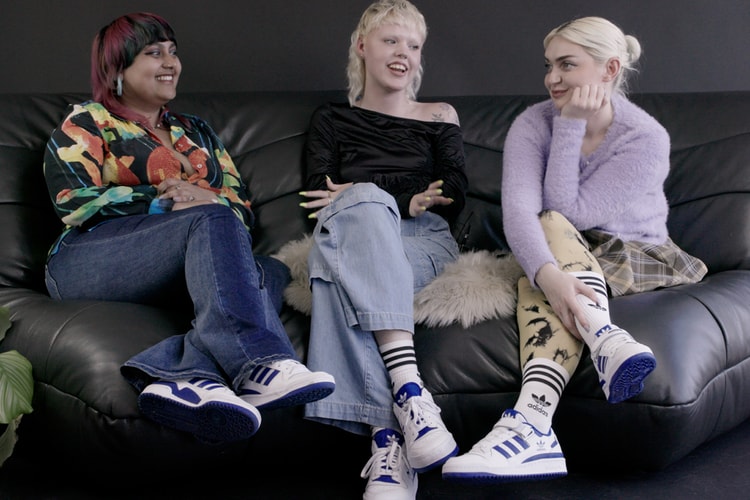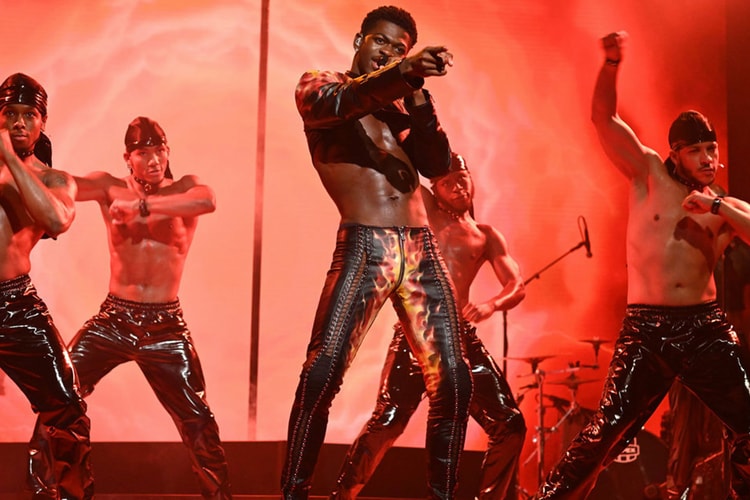
Dr. Jessica Clemons on Bridging the Gap Between Mental Health, Black Culture and the Hip Hop Community
The board-certified psychiatrist is encouraging you to be well and have necessary conversations.
Dr. Jessica Clemons, or Dr. Jess as she’s more commonly referred to as by the culture, has developed a reputation for being the bridge between the Black community and mental wellness. While some may recognize her from her appearances on The Breakfast Club with Charlamagne Tha God, DJ Envy and Angela Yee, Dr. Jess has been featured on other outlets such as Forbes, REVOLT and CBS This Morning to discuss racism as a public health issue, as well as COVID-19’s mental health impacts on Black people. After graduating from Tuskegee University and Weill Cornell Medical College, Dr. Jess has been making waves in entertainment, specifically with VH1’s In Session: Live With Dr. Jess, the first television programming of its kind.
With her baby Brilliant turning one year old, Dr. Jess has a lot to celebrate, especially now that the world is slowly opening back up one vaccine at a time. “Like everybody else, I’m definitely looking forward to when we can all be together in person, but for now, here it is,” she tells HYPEBAE. When it comes to offering counsel for those who may not have any resources or people to rely on for conversation, she suggests visiting sites such as Therapy for Black Girls, Inclusive Therapists and The Loveland Foundation.
“I would encourage people to open up to people who are in their world — their friends and family — to share what they’re experiencing,” Dr. Jess says. “Tap into what you do. Create, even if it’s just getting back to a place of doing it for you. I think that’s going to be really helpful for people outside of finding the therapist for themselves.”
We caught up with the Huntsville, Alabama-raised board-certified psychiatrist about mental health in the hip hop world, the importance of Mental Health Awareness Month, and how she uses music as a coping mechanism.
Why is Mental Health Awareness Month so important to you?
I’m a board-certified psychiatrist. I’m caring for people who have mental illnesses or conditions every single day, so I’m seeing firsthand what people are experiencing and helping them work through their problems and find the right medication. I really find this month to be so important, because now those conversations that are happening in silo get to happen in the open spaces. A lot of the work that people like me and other folks have done has been reducing stigma and making conversations [around mental health] normal.
This month really marks when everyone just slows down and has conversations about mental health. This month is just exciting for that reason. It’s almost like I get to step out of my office and get to have conversations outside of that space. Obviously not talking about patients’ information, but it just feels like everyone is thinking about [mental wellness]. It’s important to reduce the stigma, but then also to help people know where to find help.
“It’s time to really shift the narrative from stigma in the Black community, to where people can get help.”
How have you seen the stigma of mental health for Black people in hip hop culture dissolve within the past year?
When I was doing an internal teaching opportunity, I shared, “We are going to start shifting this conversation today from stigma in the Black community, to ‘where can Black folks get care?’, ‘where can Black folks find a therapist?’, ‘where can Black folks find a psychiatrist?’”
Obviously, there’s going to be pockets, where people haven’t quite fully heard about mental health and feel comfortable [discussing it]. To your point, with pop culture, hip hop culture and young folks, more people are talking about [mental health]. In the last year, if you use social media as a barometer for these conversations, there are so many accounts now that are led by therapists. There are so many organizations now that are peer-driven by people who either have a mental illness, or someone in their life does. You can see immediately when you open up any app on social media how widespread this advocacy of work has gone. Celebrities are being very forthcoming and upfront about their experience.
Over the last year, certainly a lot of my work has been in that space as well. I’ve been doing this since 2018 and have been really trying to focus on our community. I think the conversation has got to shift, so let’s put that in here today. It’s time to really shift the narrative from stigma in the Black community, to where people can get help.
“When we see hip hop artists being very upfront about therapy, it shows people that we need to be closer to our emotional world. We need to let professionals in, especially if we’re having trouble.”
How do you believe Black celebrities and hip hop culture have assisted in the normalization and destigmatization of therapy for Black folks?
I definitely recall the day when Charlamagne and I did the first live therapy session that was televised on VH1, In Session: Live With Dr. Jess. I think that really marked a point for therapy that demystified it, and that was Charlamagne’s goal. I was honored to be able to be like a conduit in his overall goal — when you have things like that happening where people are saying, “I’m going to come forward and I’m going to show what it looks like.” I got so many messages following that, and I continue to get people [telling me] they’ve watched it and now they’re ready to go to therapy. Then you have other celebrities like Taraji P. Henson, who started the Boris Lawrence Henson Foundation and really honoring her father’s memory.
You have people like that who are using their voice and their platform to really focus on mental health. They are not afraid to share their personal experience around it. No matter what we think, people are influenced by celebrity and that stature. People are drawn to it. When we see hip hop artists being very upfront about therapy, it shows people that we need to be closer to our emotional world. We need to let professionals in, especially if we’re having trouble. The examples really help, and the fact that people are going to social media and these public outlets helps. It levels the playing field. You can see that your favorite celebrity has anxiety, and now you can feel more comfortable about your own anxiety. It’s really been very powerful to see this unfold in this way.
“You want to be intentional [with your use of social media]. If it’s feeling draining, like it’s causing you to feel overwhelmed, anxious, on edge, you might need to take a break.”
How can social media be used as a tool to change the conversation around mental health?
People have to be very intentional about their use of social media. There certainly is data that shows teens, especially young girls, have higher rates of suicidal thoughts. Is it social media that’s making people depressed or suicidal, or is it that they’re depressed and suicidal, and now they’re spending more time on social media? We don’t know yet, but we do know there is an association. The reason I’m sharing this is because [social media] can have a positive side too, where you can start an organization like BEAM, for example. Use social media as a way for people to find you, be able to break into groups, do things on Zoom, and eventually in real life. It certainly can be an avenue for people to meet up with like-minded folks.
On the other side of that coin, it can be correlated with some of the depressive symptoms. Social media can be helpful if someone has a question, but at the very least, you can know that you’re not alone and find community in that way. You want to be intentional. If it’s feeling draining, like it’s causing you to feel overwhelmed, anxious, on edge, you might need to take a break.
“Hip hop is able to really tap into the story and experience that Black folks can relate to.”
How have you been able to use music, specifically hip hop and R&B, throughout your personal life as a sense of relief or community for your own mental health?
I am always thinking about music. Hip hop is able to really tap into the story and experience that Black folks can relate to. I found that there’s music that can get me through [challenging times], and it’s a powerful tool I use all the time. To feel calmer, to feel close to the anger, to feel joy — I just find that you’re able to really tap into some emotional experience that isn’t always accessible.
How do you feel that police brutality, the Black Lives Matter movement and the most recent election cycle have impacted Black creatives and people in the hip hop industry?
I know it’s a hard time. I think about artists. They want to be able to get close to their fans, they want to be able to perform — and frankly, that is a lot of where the revenue comes from too. You got to be out there doing shows and concerts. I would imagine it’s very difficult just being cut off from that experience, and that experience can often be the source of inspiration — it’s seeing the energy of the crowd responding to the music that you’ve created in the studio, and now you’re out singing it and getting that real-life energy. A lot of people have already been a part of virtual conversations and using social media as influencers. I think they just don’t have access to what they need, which is to be able to be inspired, because they need to be out with the people that they’re making music for. It’s difficult, the pressure of still meaning to create content is hard. Right now, it seems like everybody is creating content. I could imagine that maybe for artists who are still developing and trying to find their community, that can probably feel a little like, “Well, how do you find yourself in this social media world?”
D’Shonda Brown is a freelance culture journalist, public speaker and mental health advocate based in Brooklyn, New York with a passion for mental health, social justice and uplifting the Black community through her writing. As a mental health advocate and suicide attempt survivor, in 2019, D’Shonda became Mental Health First Aid Certified for adults and children, and graduated from the Advocacy Ambassador Program by National Alliance on Mental Illness. D’Shonda is a proud Spelman College graduate and has interviewed notable names from Angela Rye and Soledad O’Brien to Chloe x Halle and Justine Skye.






























